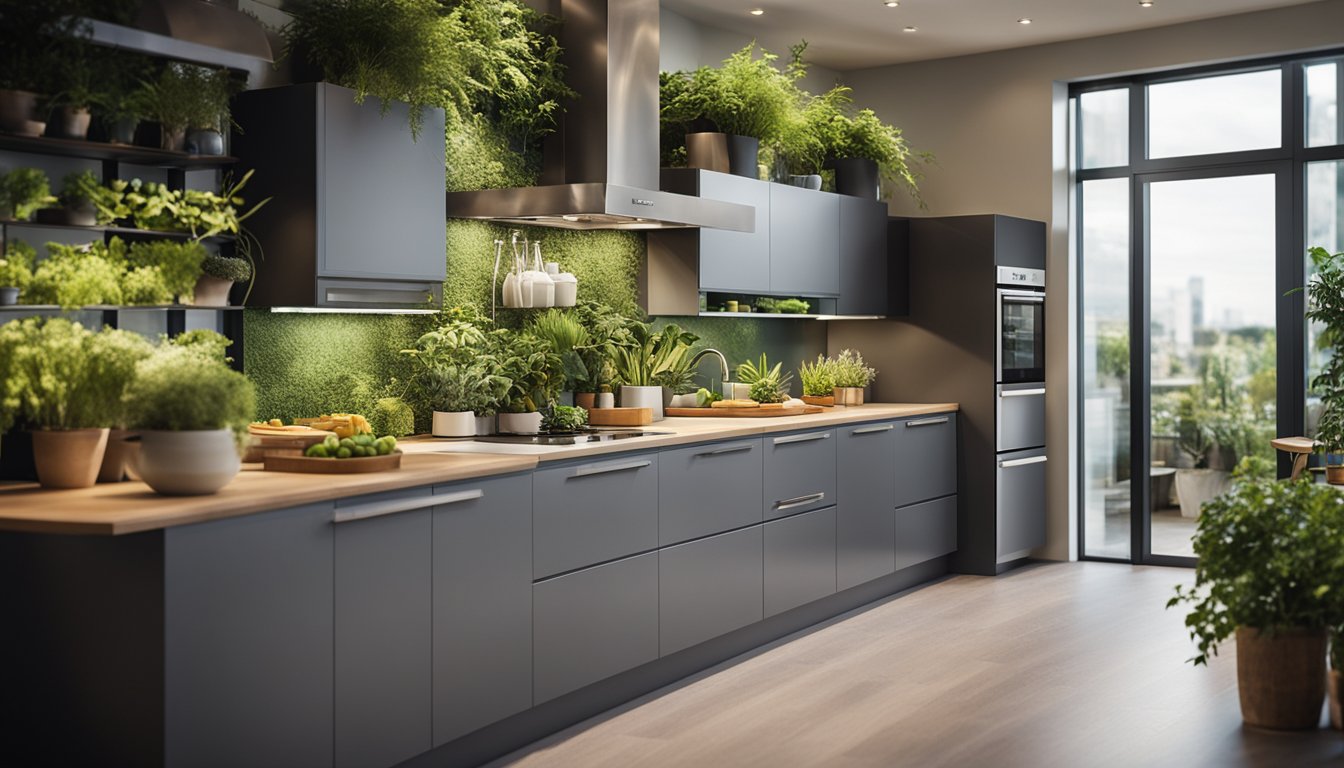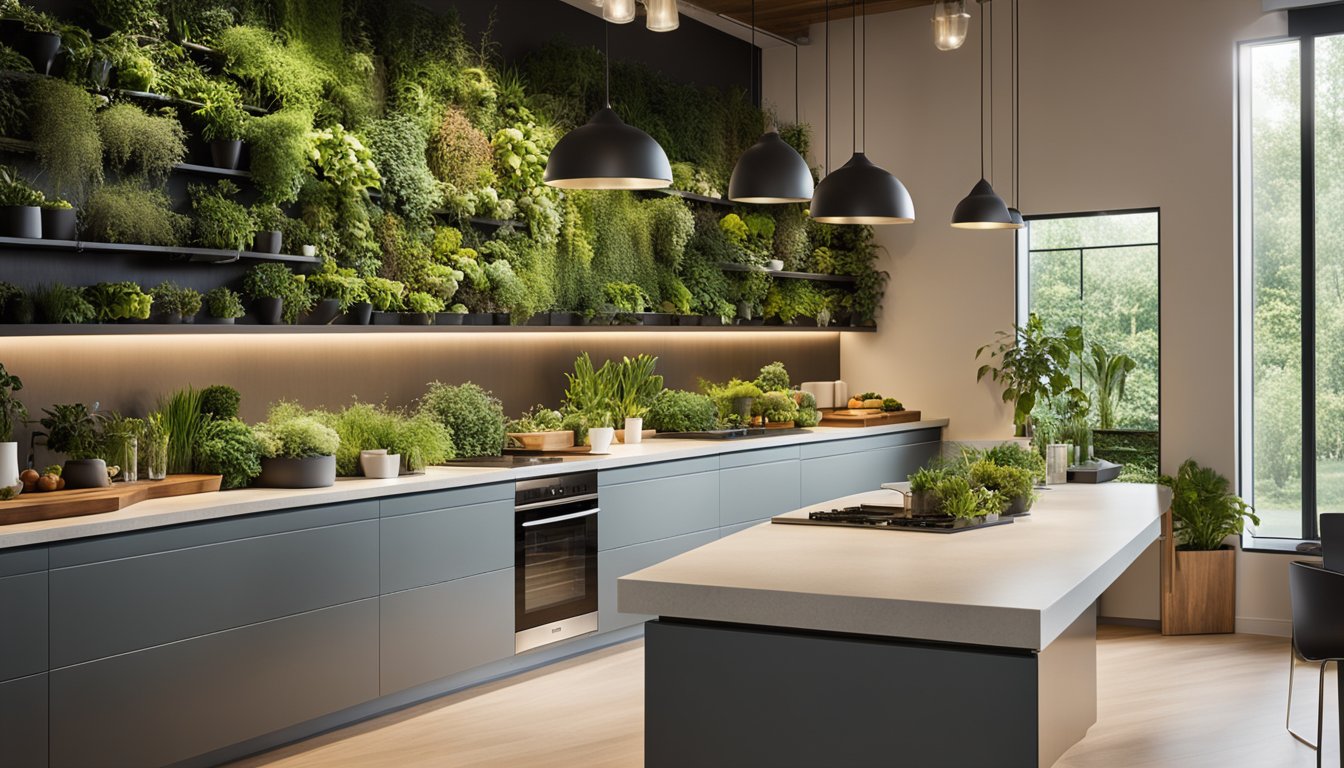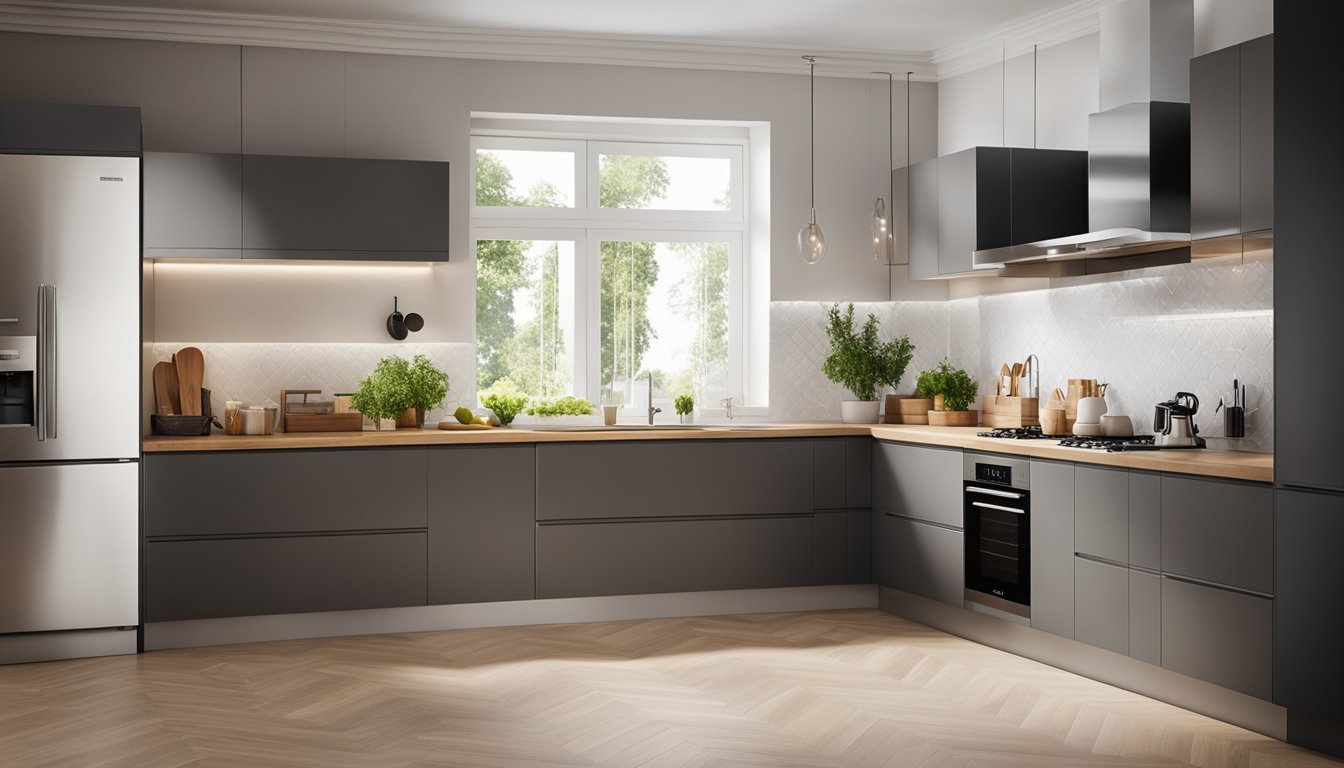Late updated: 24 Nov 2024 14:11
Written by: Eleanor Hartman
Innovative Eco-Friendly Kitchen Renovation Ideas for a Sustainable Home
Reimagining our kitchens with sustainability at the forefront can transform not only our homes but also our contribution to a healthier planet. As environmental issues capture global attention, many of us are seeking innovative ways to make our living spaces more eco-friendly. By integrating sustainable materials and energy-efficient appliances, we create kitchens that are both stylish and kind to our environment. Incorporating recycled materials and water-saving technologies not only reduces our ecological footprint but also adds a unique character to our kitchen spaces.

Beyond material choices, innovative design plays a crucial role in crafting a sustainable kitchen. Smart revamps can offer fresh solutions to common design challenges, from optimising small spaces to ensuring functionality without excess. We find that these updates not only make our kitchen operations smoother but also reflect our commitment to sustainable living practices.
Transforming our kitchens into eco-friendly havens is not just about construction but also about cultivating habits. As we embrace green technologies and designs, our everyday actions in the kitchen can contribute significantly to environmental preservation. This journey of renovation becomes a testament to our resolve for a better future, one small step at a time.
Key Takeaways
- Eco-friendly features enhance kitchen functionality and sustainability.
- Innovative designs offer solutions for efficient and stylish kitchen spaces.
- Sustainable renovations reflect our commitment to the environment.
Key Elements of an Eco-Friendly Kitchen
Creating an eco-friendly kitchen involves thoughtful decisions that reduce the carbon footprint and promote sustainability. Efficient use of materials, energy, and waste management is critical to achieving this goal.
Choosing Sustainable Materials
Selecting sustainable materials significantly contributes to an eco-friendly kitchen. Reclaimed wood and bamboo are excellent choices due to their minimal environmental impact. Reclaimed wood offers a unique aesthetic and utilises resources that might otherwise go to waste. Bamboo grows quickly and requires fewer pesticides, making it a renewable choice.
Plywood, when sourced responsibly, offers a durable option that supports sustainable practices. Opting for recycled materials, such as recycled glass countertops, can also enhance the kitchen's eco-friendliness. These materials minimise the need for new resources and reduce waste.
Using materials certified by organisations like the Forest Stewardship Council ensures they meet strict environmental and social standards. This approach aids in lowering the carbon footprint, promoting a more sustainable environment.
Incorporating Energy-Efficient Appliances
Integrating energy-efficient appliances is vital to reducing energy consumption. Energy Star appliances are a reliable choice, as they use less energy without sacrificing performance. Appliances like refrigerators, dishwashers, and ovens certified by Energy Star help lower our kitchen's carbon footprint.
Smart appliances provide an additional layer of efficiency by allowing us to monitor and adjust energy usage. These appliances can connect to renewable electricity sources, maximising energy efficiency.
LED lighting is another essential component, using significantly less energy than traditional bulbs and lasting longer. This simple change can decrease energy bills and contribute to a more environmentally conscious home.
Effective Waste Management Solutions
Proper waste management in our kitchens involves both reducing waste and managing it sustainably. A key aspect is using composting systems to recycle organic waste. This process reduces landfill use and produces valuable compost for gardening, creating a circular approach to waste.
We can introduce systems for sorting recyclables, ensuring that items like plastic, glass, and cans are properly processed and repurposed. Recycling bins with clear labels facilitate easy separation and encourage responsible waste disposal.
Additionally, adopting zero-waste kitchen concepts like using reusable containers and minimising single-use items can further support waste reduction goals. These small changes collectively make a substantial impact on the kitchen's overall environmental footprint.
Design and Functional Innovations

Our focus in kitchen design is to seamlessly blend style and sustainability, aiming for an efficient yet visually pleasing space. Key elements include optimising natural elements and integrating sustainable furnishings.
Enhancing Natural Light and Water Conservation
Maximising natural light is integral to eco-friendly kitchens, reducing dependence on artificial lighting. We recommend using larger windows and skylights to enhance daylight penetration. Incorporating LED lighting as supplementary illumination offers energy efficiency and longevity.
Water conservation is equally essential. Installing low-flow taps significantly cuts down water use without sacrificing performance. Quooker taps offer immediate boiling water, reducing waste from prolonged heating.
Sustainable Furnishing and Decor
Selecting sustainable furnishings involves prioritising materials with minimal environmental impact. Furnishings made from reclaimed materials, such as recycled metals or wood, provide durability while positively impacting the environment. Adding antique furniture can infuse unique character and supports sustainability by repurposing existing items.
Decorating with indoor plants can improve air quality, adding a fresh aesthetic. Opt for responsibly sourced fabrics for upholstery to maintain an eco-friendly standard throughout our design choices.
Eco-Friendly Flooring and Cabinetry Options
Flooring choices play a significant role in eco-friendly design. Materials like cork and responsibly harvested hardwood offer excellent options. Cork is renewable, durable, and features natural insulation properties, making it both functional and appealing. For a traditional look, certified sustainable hardwood is a favourable option.
For cabinetry, using reclaimed materials promotes sustainability while adding charm. Eco-friendly kitchen cabinetry options include bamboo or recycled composites, both providing durability and style. Selecting non-toxic finishes reduces indoor air pollution and enhances the overall kitchen health environment.
Frequently Asked Questions

In this section, we address common queries regarding eco-friendly kitchen renovations. We discuss the best materials, eco-friendly appliances, cabinetry trends, reclaimed materials, environmental impact, and waste reduction strategies.
What materials are best for a sustainable kitchen renovation?
For a sustainable kitchen, consider materials like bamboo, recycled glass, and sustainably sourced wood. These options minimise environmental impact while offering durability. Bamboo, for instance, grows quickly and regenerates, making it an excellent choice.
How can I incorporate eco-friendly appliances into my kitchen design?
Look for appliances with high energy ratings or certifications like the Energy Star label. They consume less electricity and water. Opt for induction cooktops and energy-efficient refrigerators to boost sustainability while maintaining functionality.
What are the latest trends in eco-friendly kitchen cabinetry?
Current trends in cabinetry include using reclaimed wood and recycled materials. There's also a focus on water-based finishes, which reduce harmful emissions. These choices not only help the environment but also give kitchens a unique character.
In which ways can reclaimed materials be used for kitchen renovations?
Reclaimed materials can be used for countertops, flooring, and cabinetry. Repurposing old wood or stone reduces waste and lends a rustic charm. It's an efficient way to contribute to sustainability while adding a personal touch to the kitchen design.
How do sustainable kitchen practices impact overall environmental conservation?
Sustainable practices help reduce resource consumption and waste. By choosing eco-friendly materials and appliances, we lower greenhouse gas emissions and conserve water. These actions contribute significantly to broader environmental conservation efforts.
What strategies exist for reducing waste during a kitchen remodel?
To reduce waste, consider donating or repurposing old kitchen elements. Opt for modular designs that can be easily updated instead of completely replaced. Proper planning and sourcing can minimise excess materials and waste generation during renovation works.